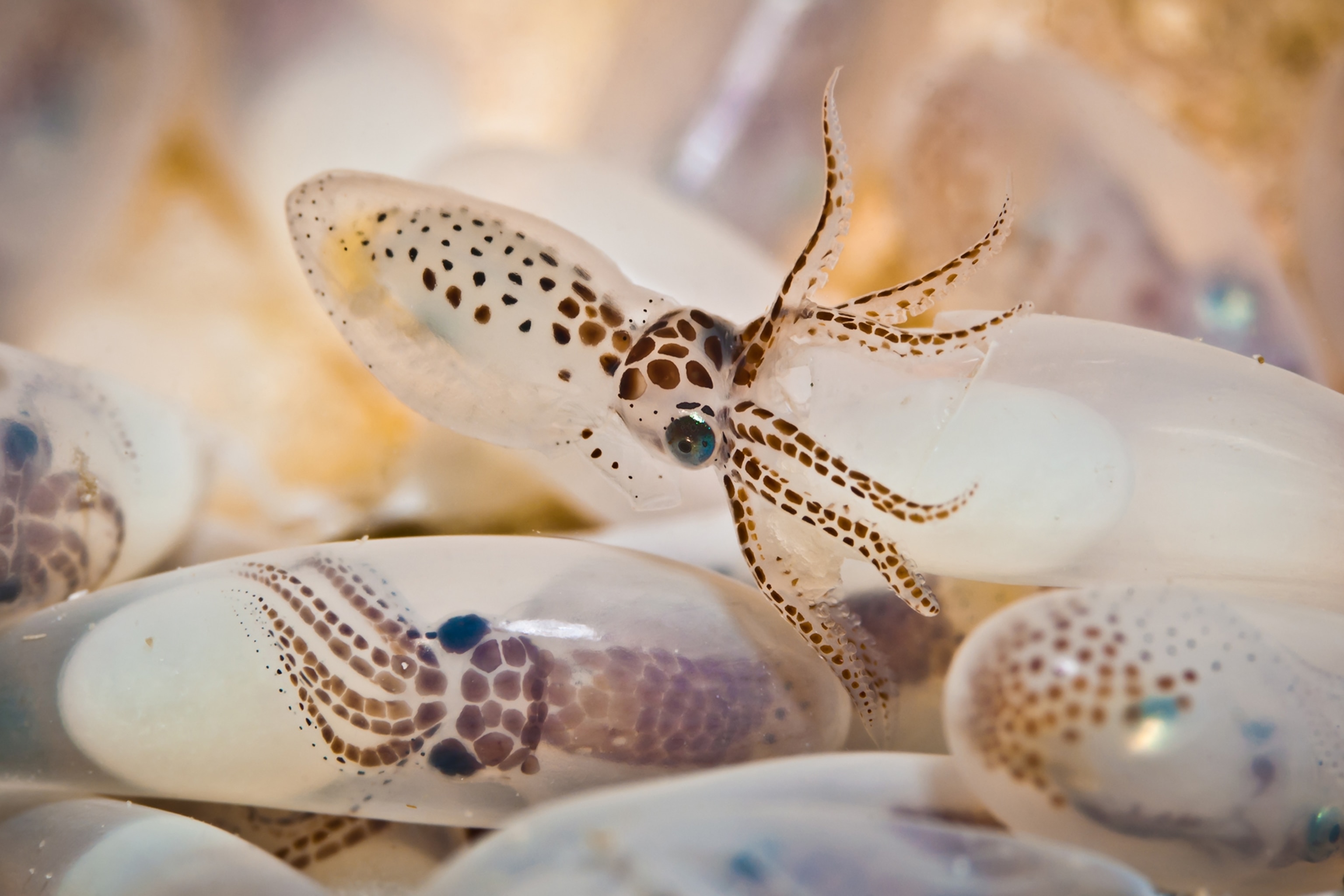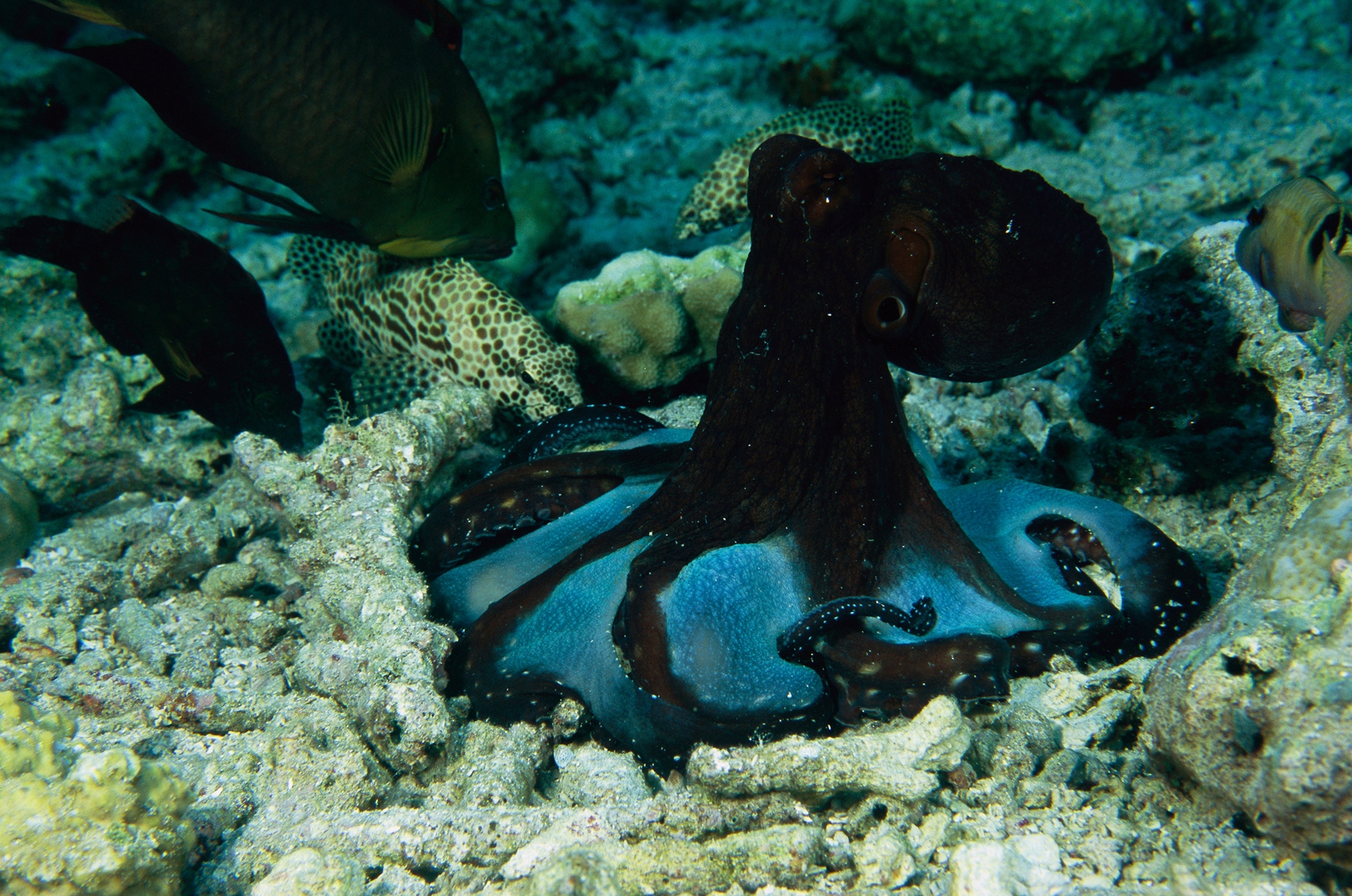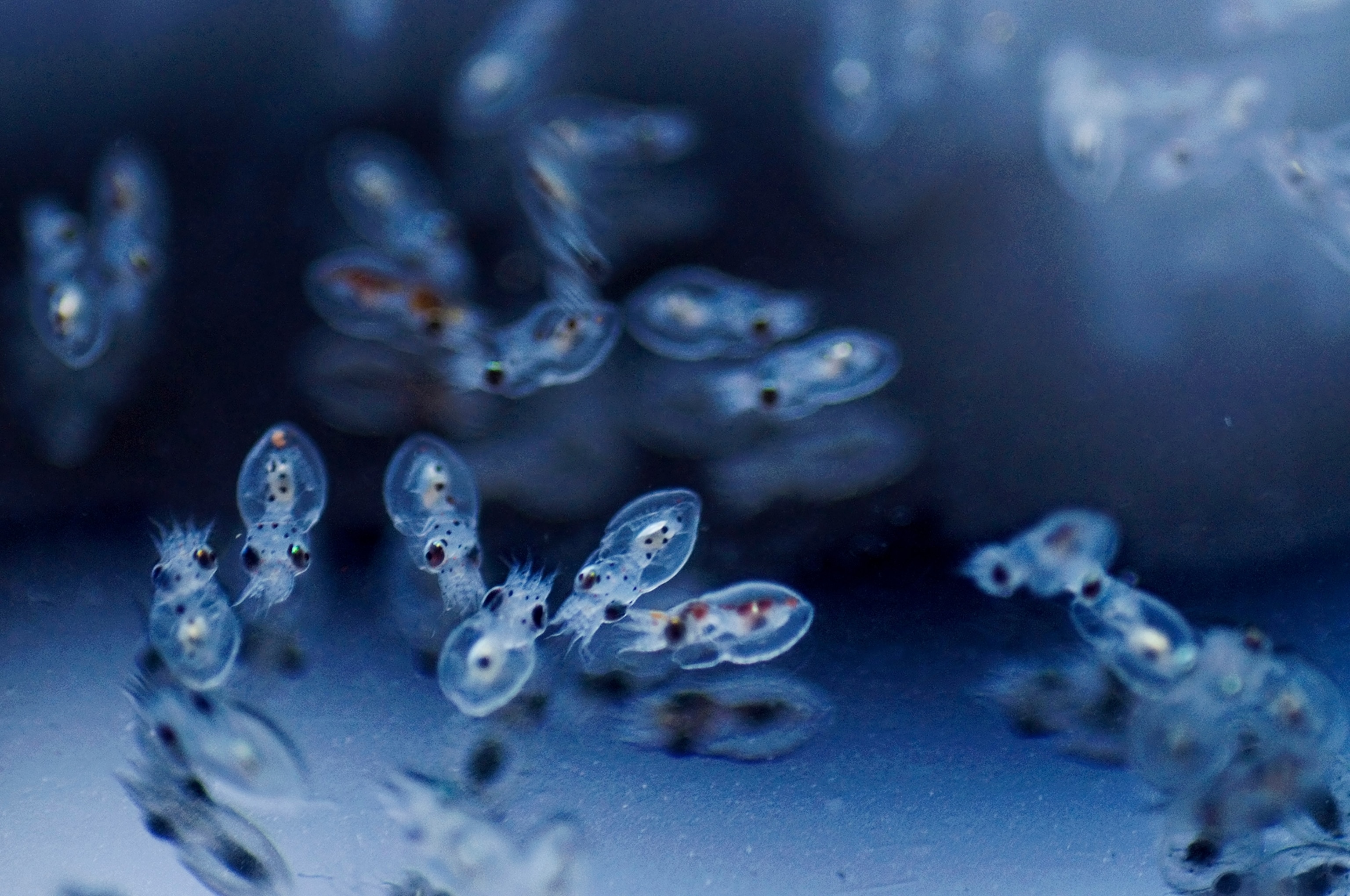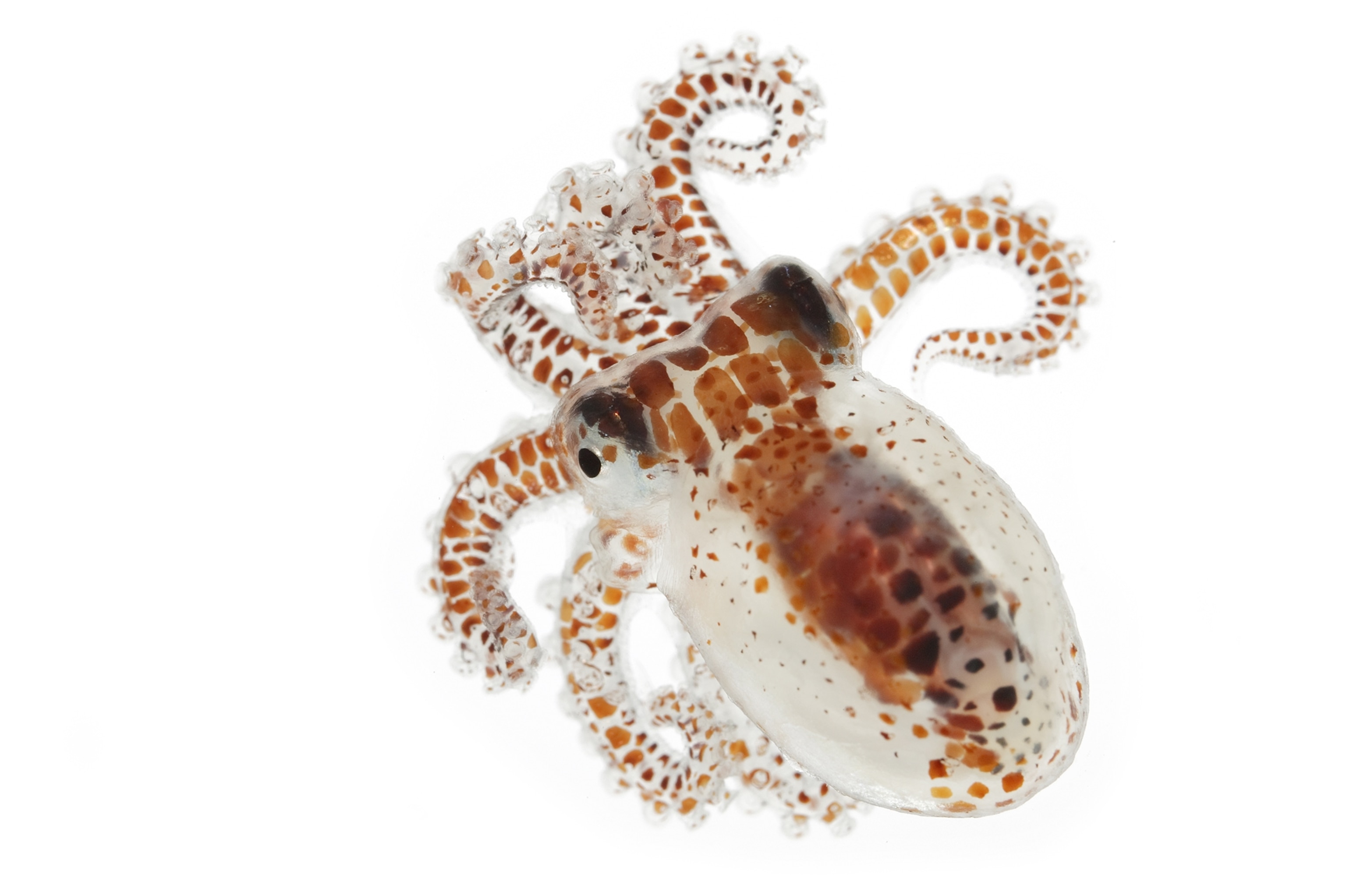What happens to octopuses given the amphetamine MDMA, commonly known as Ecstasy? According to scientists at Johns Hopkins University, the cephalopods react to the drug in much the same way as humans, leading them to conclude that our brains and octopus brains are wired the same for certain social behaviors.
But was it okay to give unsuspecting octopuses a mood-altering drug? And what does it teach us to study animals that are so very distantly related to humans?
About three years ago, scientists decoded the genome of the California two-spot octopus, and subsequent studies comparing that sequence to the human genome found patches of code that were identical, even though we separated from octopuses 500 million years ago. The genetic matches involved certain neurotransmitters—brain chemicals that send signals between neurons—associated with social behaviors. (Peek inside the deepest known octopus nursery.)
To test whether that similarity would play out, the Johns Hopkins team gave Ecstasy to four California two-spot octopuses, which are known to be highly antisocial. Sure enough, the drug relaxed the animals’ inhibitions and made them much more touchy-feely.
In interacting with the octopus in the next cage, "they tended to hug the cage and put their mouth parts on the cage," says lead study author Gül Dölen, a neuroscientist at Johns Hopkins. "This is very similar to how humans react to MDMA; they touch each other frequently."
The study’s results, published this week in Current Biology, suggest that even though humans and cephalopods went their separate evolutionary ways long ago, the parts of our brains that govern social behaviors remained the same.
Octopuses and Us
Dölen’s interest in octopuses goes beyond how they might react to MDMA. The invertebrates are more closely related to slugs than anything else on Earth, and they are shockingly smart. Octopuses routinely break out of aquarium enclosures, rearrange—or eat—their co-inhabitants in tanks, and bang rocks so hard against the glass walls that they fracture.
Octopuses are also very, very different from humans: They don’t have a cerebral cortex like mammals do, and yet they can still perform amazing feats of cognition. (Watch one octopus seem to use a jellyfish as a weapon.)
“It’s a little bit like studying alien intelligence,” Dölen says. “It can potentially tell us a lot about the ‘rules’ for building a nervous system that supports complex cognitive behaviors, without getting bogged down in the incidental organization of brains.”
Studying species at the other end of the evolutionary tree can also reveal the mechanisms behind remarkable behaviors like limb regeneration and camouflage, Dölen says, which can generate new ideas in robotics and tissue engineering. Among other marvels: Octopuses carry genes linked to autism, but they can still perform tasks that humans on the spectrum cannot. And while some octopuses die after reproducing once, others can reproduce many times, which could give us insights into aging.
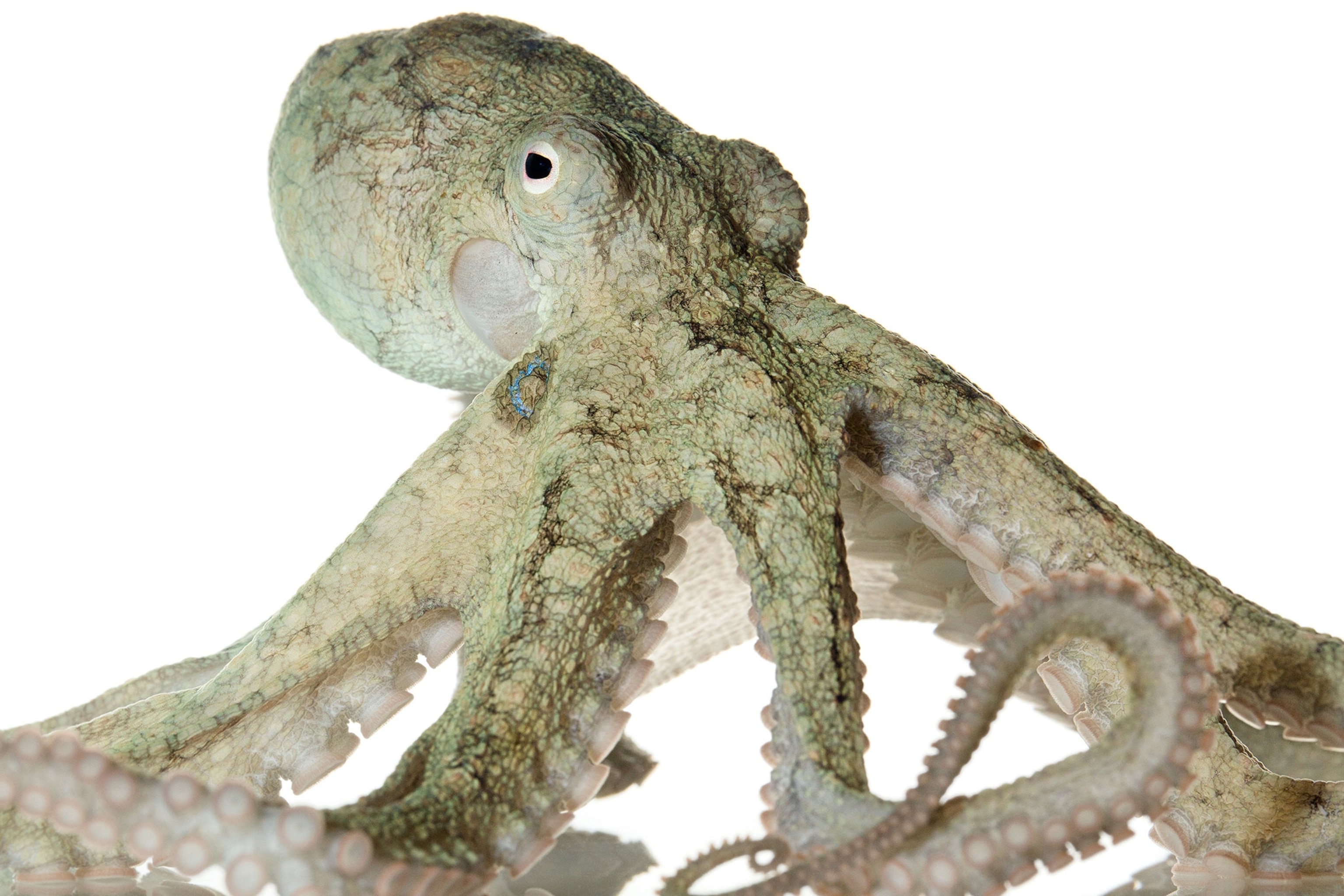
Are the Kids Alright?
The question looms whether it’s a good idea to give an ocean invertebrate a party drug. Several bioethicists told National Geographic that as long as the animals were treated humanely; monitored for signs of stress, and immediately removed if there were any; and not exposed so often to the drug that they become addicted, it’s probably fine.
“The main ethical imperative is to protect the octopuses from the experience of pain and distress,” says Jennifer Blumenthal-Barby, a medical ethicist at Baylor College of Medicine in Houston, Texas.
Ecstasy is known as a “feel good” drug, Blumenthal-Barby adds. “From their behavior, it appeared that they experienced the drug similarly to how humans experience the drug.”
Craig Klugman, a bioethicist at DePaul University, sees intent as an imperative: “Perhaps most important, there needs to be a goal for the research—an intention of producing something that will be helpful for veterinary or human medicine,” he says.
In the United States, testing on octopuses is governed by the same rules as tests on insects and worms, Dölen says, though European authorities 12 years ago made cephalopods the only invertebrate to be governed on the same level as vertebrates.
Dölen says her lab used the same guidelines as mice for their octopus experiments. Particularly telling, she says, was that after being returned to their tanks at Woods Hole Oceanographic Institute in Massachusetts, the octopuses went on to reproduce. Also, Dölen says, at no point did the octopuses ink, which would be a sign of stress.
“I should also say that octopuses are widely consumed as food,” Dölen says, “and I can tell you that even for the most invasive manipulation we might do for research, the animals will be better taken care of than they are for when they are used as food.”





